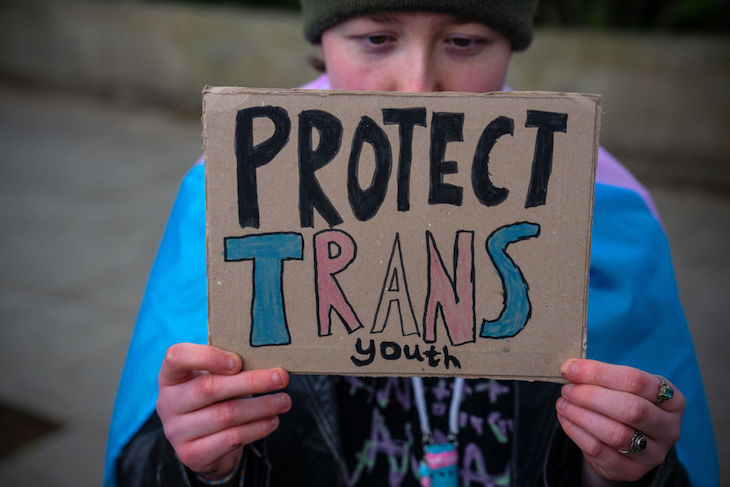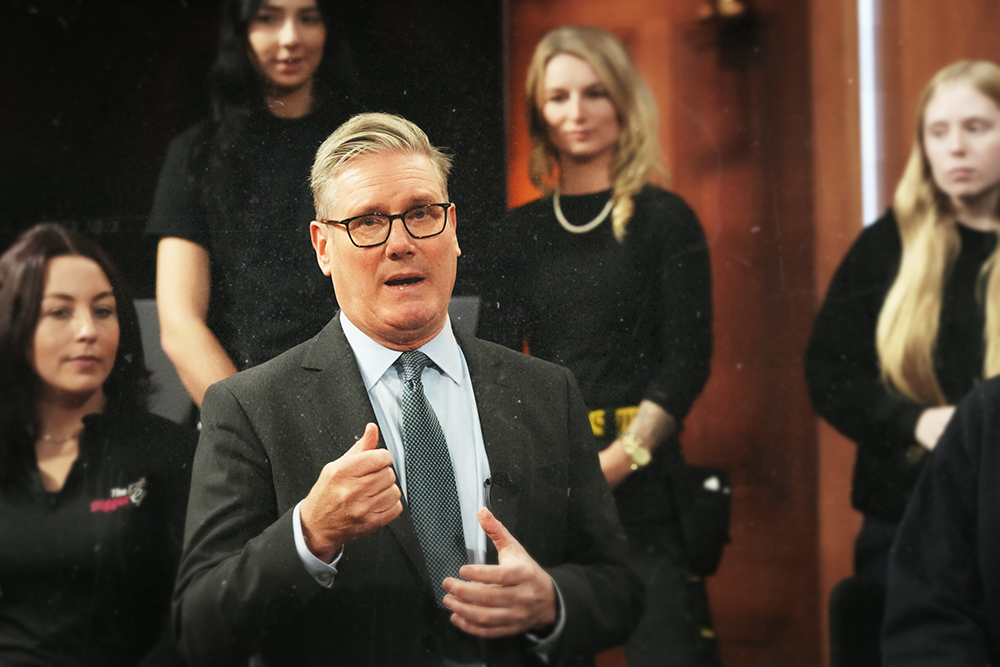Many people have been celebrating after the Supreme Court’s declaration that the definition of a woman will indeed be based on biological sex. Some have heralded it as signifying the end of radical trans ideology, or even the end of woke politics altogether. All this remains to be seen. What we certainly won’t see, however, is the language of emotion in politics finally being put to bed, as reason and common sense make a welcome return to our lives. In fact, the tyranny of feelings is likely to get much worse.
Before Wednesday’s landmark ruling, radical trans activists had invariably deployed feelings and emotive words to advance their cause. They have argued long and hard that they only want ‘acceptance’, fear ‘exclusion’, or feel ‘hurt’ or ‘offended’ at the failure of society and other people to acknowledge their beliefs – both their personal belief in who they are, and their philosophical belief that individuals can literally change sex.
A similar recourse to emotion was seen in all its dismal predictability on Thursday morning, when the ‘non-binary’ broadcaster Shivani Dave appeared on Talk TV to discuss with Julia Hartley-Brewer what constituted a woman now, in the wake of the ruling. After Hartley-Brewer sought to impress the importance clarity of language on the subject – Dave had dismissed the Supreme Court’s verdict as ‘that is to me whatever… I mean like that whatever’ – and after the host had stressed the centrality of genitalia on the topic, her guest walked out. Dave claimed to feel ‘unsafe’.
Dave was reading from a well-established and oft-repeated script. On ITV lunchtime news on Thursday, an online ‘influencer’ spoke rather more articulately and behaved with more decorum, but their argument was nevertheless still based in sentiment. Rather than being expressed with petulance, this activist spoke the language of pity and hurt, of the continued frustration of trans people to be recognised and accepted.
It would be unfair to single out trans activists for opprobrium here. The language of emotion and feelings has abounded and proliferated in politics for years. It made itself conspicuously known in the 1990s, the decade in which Bill Clinton famously told a rally that ‘I feel your pain’, and the years in which Tony Blair’s bottom lip would wobble and eyes secrete hot tears of empathy at opportune moments.
Little has improved in the ensuing period, as our culture has become more superficial, babyish and vulnerable in its sensibilities. Trans activists have not been the only ones speaking the language of ‘safety’.
In response to worries that current Employment Rights Bill could entail staff in pubs taking action against bosses if they overhear offensive language, a transport minister, Lilian Greenwood, said that such concerns were an ‘exaggeration’. She stressed that private conversations had ‘to be done in a way that isn’t going to affect the rights of others to work in a safe and secure environment’.
It’s telling that such words ‘unsafe’ and ‘safe’ should have become routinely employed in political discourse. There was a time when they were more commonly used in their prosaic and literal sense. But in our age of precaution, fragile feelings and offence-taking, ‘safety first’ has become an overarching mantra on how to conduct ourselves verbally and how to decide government policies in general.
While a neurotic safety-first approach, inspired by a precautionary principle, informed the disastrous responses to the Covid-19 pandemic, the language of ‘safety’ and avoiding ‘hurt’ in its figurative sense has been firmly enthroned for some time. The infantilisation of society can be witnessed in the evolution of language elsewhere, in the evolution of the word ‘bullying’. This used to be an activity that only happened to children in the playground. It now affects adults in the office, a place where employees will tell if someone calls them a nasty name. The needy cry for people to have their identities ‘recognised’, or the impetuous demand to be addressed by the correct pronouns, is but an extension of childish behaviour.
The elevation of feelings above reason, or even a replacement for it, is well-established, as the existence of ‘hate crimes’ and ‘non-crime hate incidents’ testifies. Saying horrid words or being ‘offensive’ can land you a lengthy spell in prison in Britain today. After this week’s Supreme Court ruling, brace yourself for a lot more rhetoric about ‘hurt feelings’.







Comments